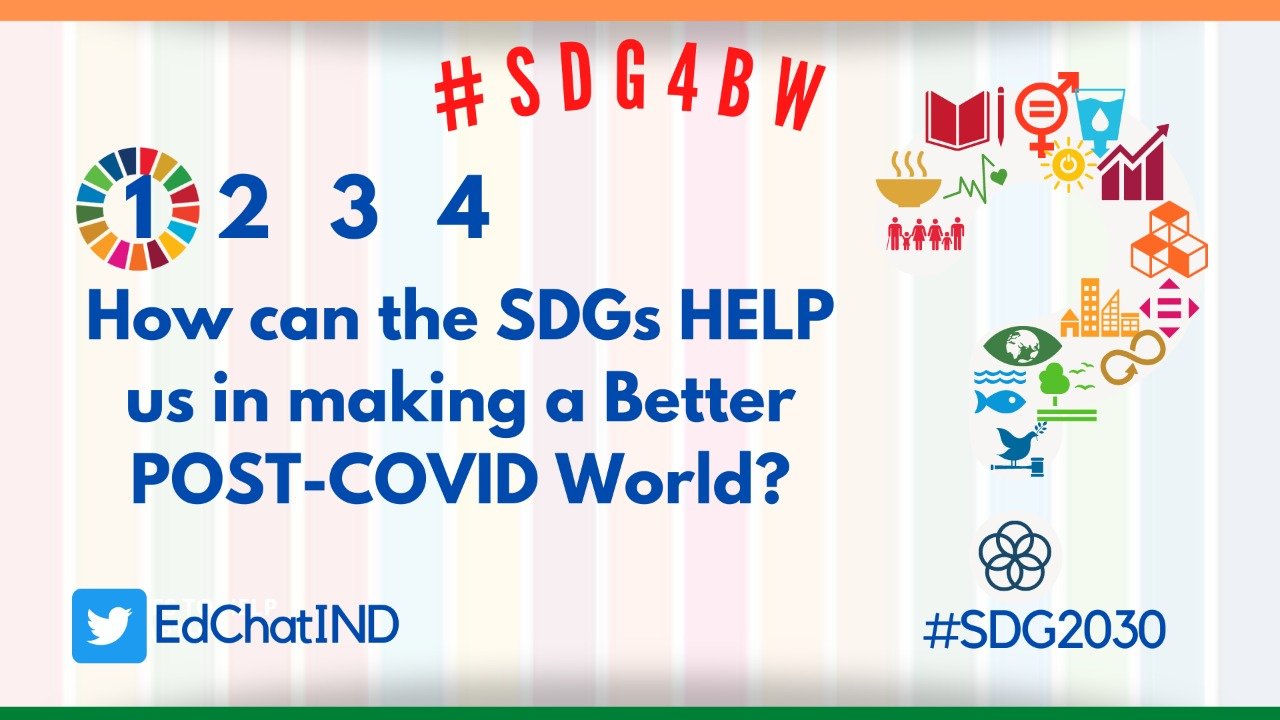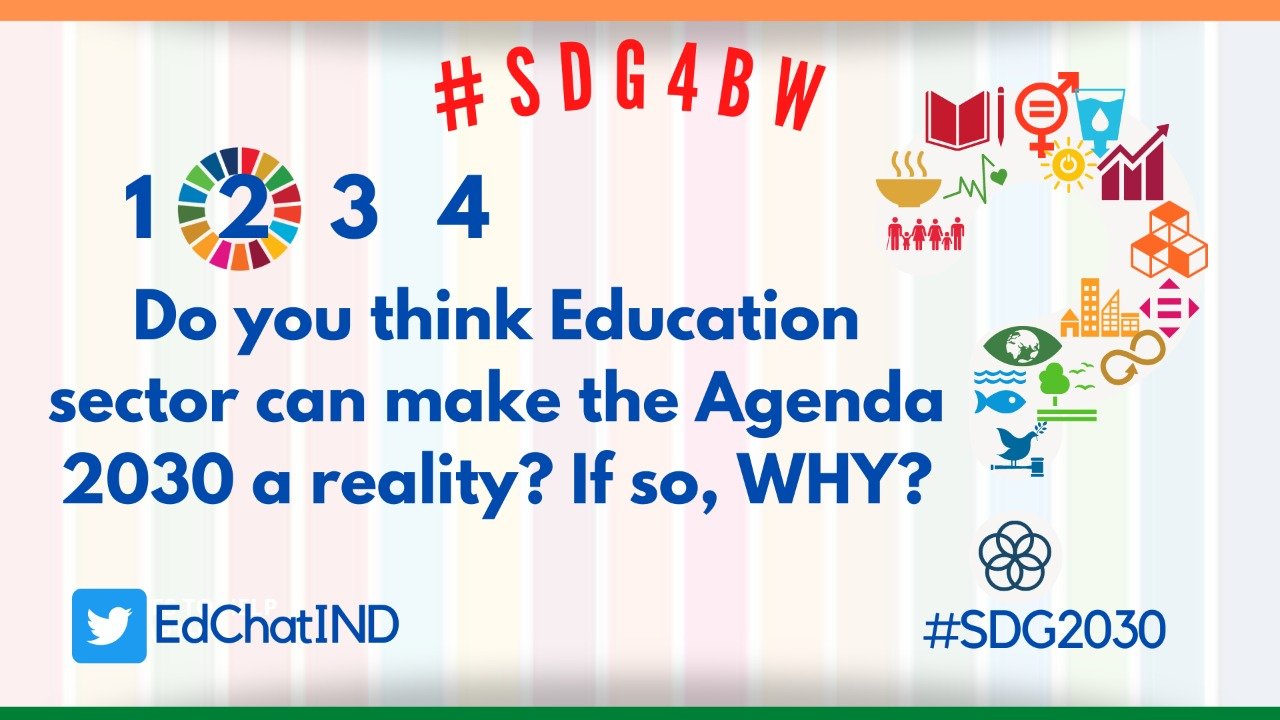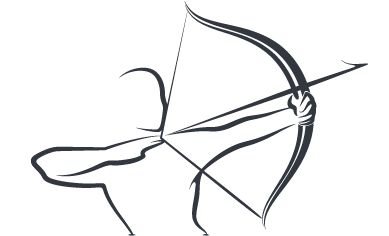The Sustainable Development Goals given to the world by the United Nations are based on what we need to survive in a better world. In the Agenda 2030, there are 17 Global Goals and there is a majority of activists and artivists supporting this mission. The National Education Policy 2020 (INDIA) has mentioned the SDGs and has given a call to align education in India to these goals. The ball is in the classroom court now! Are we ready to align to the intent and the demands of SDG awareness?
Education has always been the change agent in the world. What happens in the classrooms is reflected in society. It is not vice-versa. The difference, the intervention that we wish to make has to start from the educational ring itself. So, here we are to talk about SDGs and education. Let's make a few things clear here:
- The world has already been talking and working on the SDGs - the Global Goals - the SDG2030 Agenda. So, we must not feel we are the pioneers in this.
- The SDGs are meaningful and sensible things to read, to introduce and integrate into academics
- It is not just for the goodness of this mission - careers and businesses also depend on the adherence to the Sustainable Development Goals
- we cannot do an SDG related activity just for the sake of doing it because in that case, it remains a routine activity, with fewer benefits
- The students whom you introduce to the 17 SDGs today will be thankful to you when they meet someone - who has been an achiever in life and career!
- Teachers need to come together to understand the whole package, the intent and the possible engagement they can generate.
- The good thing about SDGs and their educational role is that you are never alone - not just your own country but the whole world, the best of institutions, schools, educators and policymakers are talking about them.
The UN has declared the decade of 2020-2030 as the 'decade for action'. However, it is also starting as the decade of resilience as the world is shaken up by the pandemic. In an unprecedented move, the government has decided to make a bold and transformative statement with the release of the New Education Policy. The NEP 2020 says:
''This Policy proposes the revision and revamping of all aspects of the education structure, including its regulation and governance, to create a new system that is aligned with the aspirational goals of 21st-century education, including SDG4, while building upon India's traditions and value systems.''
– Education Policy of India 2020.
The NEP seems to support holistic and inclusive education where learning based on inquiry, curiosity, discovery, discussion and analysis is preferred. It also brings to lead: Access, Equity, Quality, Affordability and Accountability in education. This policy is aligned to the 2030 Agenda for Sustainable Development and aims to transform India into a vibrant knowledge society and global knowledge superpower by making both school and college education more holistic, flexible, multidisciplinary, suited to 21st century needs and aimed at bringing out the unique capabilities of each student.
Implementing SDG-4: SDG - 4 envisages ensuring inclusive and equitable quality education and promotes lifelong learning opportunities for all. The NEP through the following provisions strives to achieve these targets.
- Multi-Disciplinary Approach
- Education and Skills Integration
- Making Education More Inclusive
- Effective Regulation
- Allowing Foreign Universities
The New Education Policy 2020 has started making interventions now. Schools and Universities have an advantage because they can introduce any number of positive changes - interventions and actual transformation that 'align' with the true purpose of education. There have been ripples all over the country and we are able to see some daring among policymakers about getting into the changing waters. This change was much awaited. Fortunately, we are in a new age of 'sustainable survival' and the NEP 2020 can be encased with some worthy dividends.
To take this SDGs For a Better World mission among the masses and invite them to collaborate - we have started a tweet chat that has received a good response. You can go to Twitter and join @EdChatIND and @SDG4BW to join the interactions. The mention of activities and ideas in the chat highlighted the exceptional energy invested by fabulous educators all over the country. we shall soon share the summary and report of that chat, where we will bring the do-able ideas to all of you in terms of classroom inclusion of SDGs.
Do plan the SDGs Mapping of the Curriculum so that the education we impart is related to the world we are teaching them for.
While you take a class tomorrow morning - keep one thought in mind:
Are you preparing them for the Present or the Future - they will exit into?
If future - here we are with Agenda 2030 and even if you read it as 'present' - Do something that Your Future self will be thankful for!
These are the questions we shared in the First #SDG4BW TweetChat:




References:







